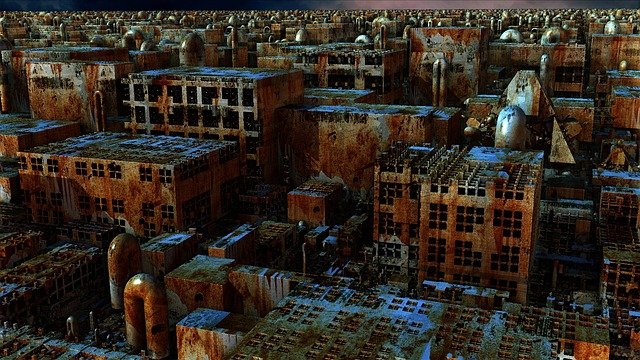
Is UBI, in any form or methodology, an automatic recipe for a dystopia? Is it always done through wrong-actions? Will it always fail no matter how it is done? Or is there merit in the idea to consider and develop it further?
I will talk about some of the objections to this idea, that I find laughable and without merit as valid objections.
@dantheman laid out a hypothetical thought experiment to explain a more viable method of Universal Basic Income that would not violate people's right to their property and allow for social programs to benefit those less able.
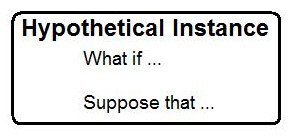
Some people think that UBI is impossible, and to even consider it, and "waste" time and space on the blockchain, or even worse "drain" the reward pool with "useless" material, is a bigger problem for them. Let alone, the audacity of a rich founder employee to dare think they could produce philosophical material for others to read and reward. Like... who does this guy think he is... posting content he wrote and getting rewarded for it by others... I determined it's not a good idea and doesn't deserve anything!
Seriously though... get a grip people...
For the issue of UBI being impossible as a working viable solution in the long term, I agree, I've even said so in a previous post, but with the caveat that it would need to be voluntary to succeed, otherwise I didn't see it working. @dantheman has laid out an idea for how this could be done without actually taking from anyone, given that we would all live in an automated world where people's labor is not being taken from. Hence, it would be voluntary, because you wouldn't have created anything, and you don't lose anything that way either, so nothing is being taken from you.
And even before the automation, we could start it off in a controversial way, as he recently laid out.
I think some objections are based on the whole redistribution of land aspect that people don't like. They aren't honestly evaluating the progressing of land grabbing, theft and power it held in society to arrive at where we are now, with an inability to live freely on this planet from land what was there before anyone got here. Some people played games of death-dealing and war and took it all over for power and control over others. There has never been a reset to put things right. People have a lot to lose in a reset.
I think a lot of the objections come from blind associations with anything that has its roots in socialism or appears socialist. Rethinking a concept and methodology for how to make it come about is not a welcome task for some people. Their reading and thinking gets all cloudy on these emotional subjects.

So don't think about this change right now. We are talking about ideas of the possible or likely future to come, i.e. of robotics and automation, and how that will affect our employment. Hence, the UBI as part of the discussion when that likely future eventually comes about.
I used to be really against UBI, automation and AI. Not as much anymore. There is great potential for misuse and problems from these tools. But that's the thing, they are tools. If the creators (humans) make the tools right, then its ok. If the tools are made wrong, then we can have big problems on our hands. The problem is how we create the tools, not the idea of the tools.
Does that mean there are no other problems? Of course not. People can be lazy, exploit a system/tool, and maybe we can think of workarounds and fixes to problems before they happen, and maybe we can implement this type of change before automation comes if we do it via an investment route, who knows. @inertia has a post on that investment angle which is good.
Many programs/tools we have now were not created properly, designed poorly, don't work, cause additional problems, or make things worse. The original idea might be valid, but the methodology of implementing it was not.

There are problems some people want to pick at, and use a huge lock of denial to attempt to invalidate the idea from being honestly discussed or resolving the problems it initially has. They want to project what people have done, into the future and say a new model won't work because the way people work in the old model won't work in the new model. LOL.
Does anyone see the fallacy? How can you expect people who have been conditioned to live in the conditions of an old model, to automatically fit into the mold of a new model? The whole reason it's called a new model is because it's a new model and different, contrasts, and possibly contradicts much of what the old model was about.
So someone has an idea of how people are now, and project them into a new way of life and look at how it will conflict with their conditioned way of living. I have news for you, people can change.
And for the objections that there will be people who won't do what we "expect" them to do, and pull their own weight and contribute their fair share to society and progress, etc. or whatever, well I have more news for you: we already have that.
People exploit the welfare now, and the system now, and so many things now, but the difference is that right now our current condition has much falsity and the welfare income is from the theft of taxation of other people's labor/property. If you have a UBI, and other systems, based on voluntary investment to be profitable, not a sinkhole, then it will succeed based on making it succeed as at a profit or at least not a loss.
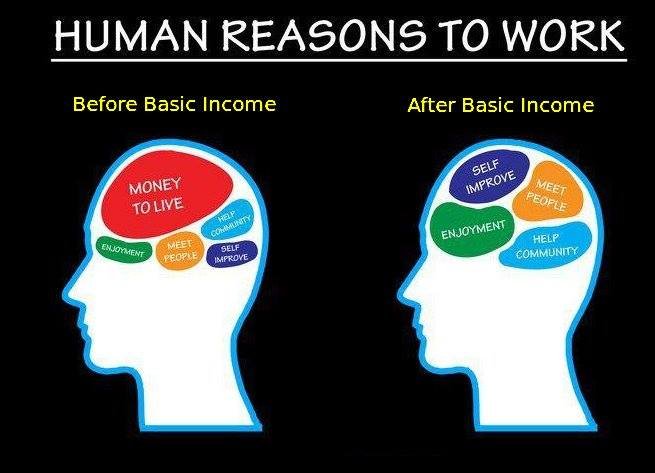
For now or in the future, we will always have potential problems from people who don't fit in or do what we expect, or how a better way of living "won't work" because people do X, Y, Z, and apparently we are like stone and are not capable of changing our ways... LMAO. Some people really don't want to look at porposed solutions and find the problems in them to resolve them. They just want to find the problems with that proposed solution, and use them to deny any further development of that solution.
Please understand this about any society:
All societies are constructs of the individuals within them. The quality of the functionality of a methodology for living is maintained by the individuals who accept or reject it. The degree of acceptance of a methodology within a society varies based on how aligned the methodology for living is with principles of truth, right, good and morality. Society, reflecting the individuals, is to be in harmony with not violating other's lives and what they produced/created with their bodies. The members of that society get along better, and can truly unite and trust each other. At their core level of being they reach a common-page level of moral understanding and cooperate to ever increasing levels of potential.
Methodologies that have less congruence, alignment and harmony with what is right, good, true and moral as a way of living, are less likely to perpetuate in the long term. They inherently go against our core being and desires for cooperation, integration and unity based on common values, respect and non-harm. Don't do to other what you don't want them to do to you. Non-harm, an apophatic approach of what not to do. So we treat others as ourselves in some respect, bridging a seemingly polarized self and others, or individual and collective, into a relatively "harmonious" reciprocal "balance".
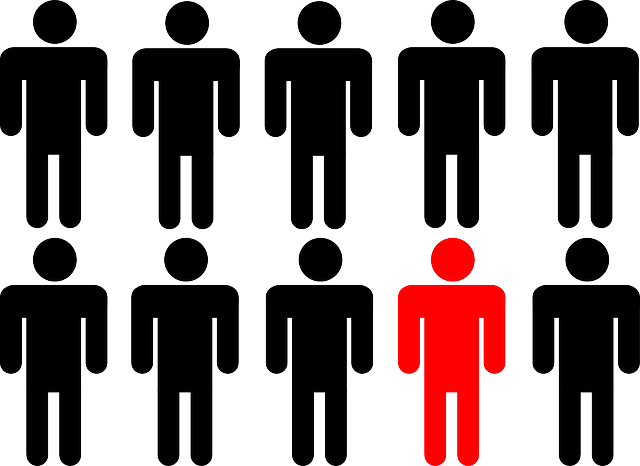
Fluctuations, upheavals, and turbulence will occur. Conflicts, friction, interference. These can be resolved, whether its about what to do in done in real life, or as a hypothetical ideal future to envision and try to create as a new model contrasting the current/old model.
Yes, there are still those "strays" to "worry" about. Life and freedom requires eternal vigilance. We alway have to be prepared or face the consequences of free will that can create actions of evil as well as good.
We can't control other individuals to get on the same page of living. Society is a reflection of individuals, but individuals are conditioned and reflect society as well. It's a feedback loop. To create the new model, the best we can do is all change individually to a new way of living, influence others to do the same, and society will automatically reflect that new change as the aggregate populace in a society aligns with that new way. As the new rises, the old falls.
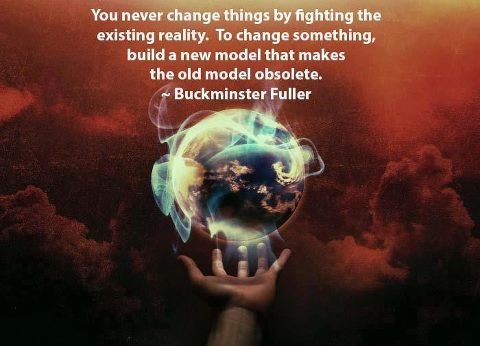
Utopia? Why does it have to be that way? Can't it just be about the idea and how good/bad it is in all respects. Aren't you just scoffing and ignoring the idea on it's own merits by whitewashing it as a "utopia" in a pejorative sense? Maybe you also scoff and mock the idea of peace and how that's impossible, so don't even bother trying to make a more peaceful world... absolute perfection is not possible so don't try to improve yourself... LOL.
If your main objections are always how it won't work for "everyone", or how someone can do "X", or "Y" in that system that isn't good... Well people have the freedom to do anything that is evil, like murder, in any damn system apart from total control, but that's not a valid argument to the validity of a system to be based on the almost infinite potential actions a human can take.
You don't compensate for potential evil actions by creating a more evil system of fear that tries to control people to prevent actions from happening. You look to create a better way of living, and deal with the continuation of immoral people (yes, more "problems" with the solution) who don't adopt more morality into their lives. You educate people on the value, virtue and purpose of being more moral. How that benefits themselves and others as well, and benefits them more so than if they only considered themselves.
Again, it's integrating self with others, individual with collective, selfish with altruistic, while not losing yourself, the individual and your needs, to be subsumed by the mass of the collective. This will create a better way of living for everyone while we all respect the moral rights of each other. If we stick to not violating others life and bodily productions, then the other problems are minor and we can resolve them relatively easily by comparison.

@krnel
2016-11-13, 2:20pm
